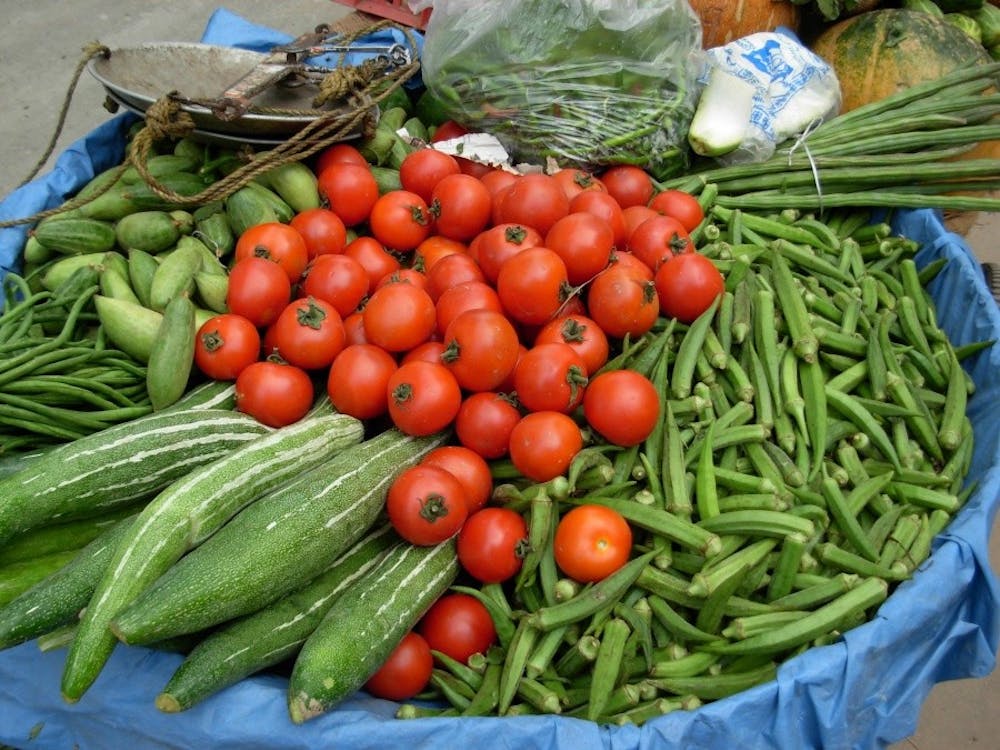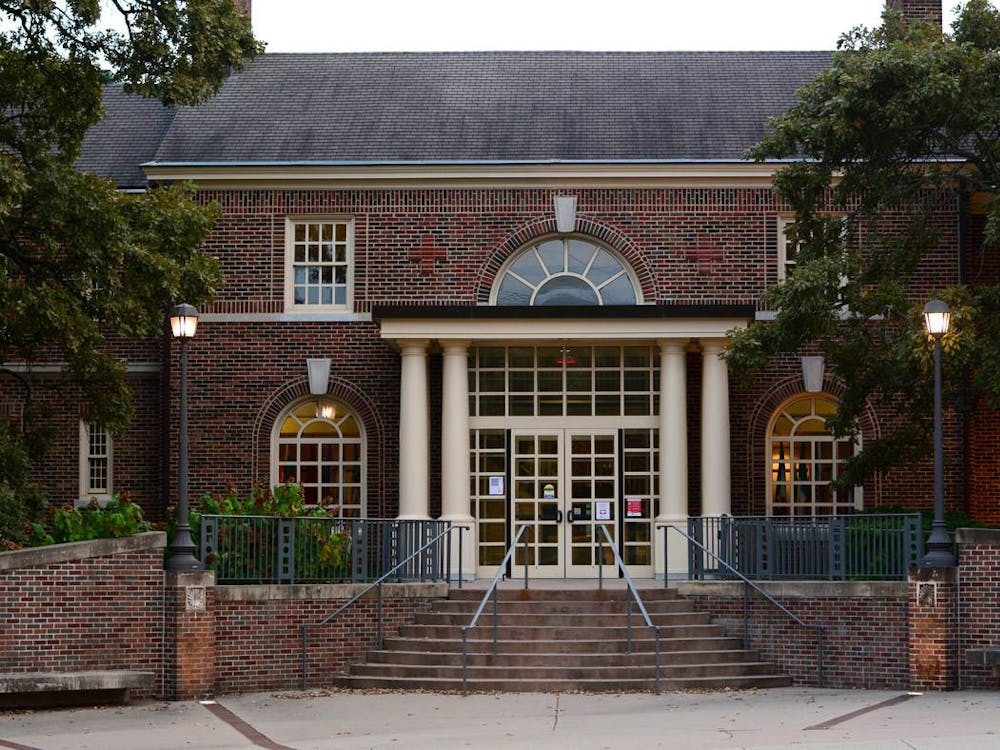By Bonnie Meibers, Senior Staff Writer
Miami Institute for Food finished first growing season with 'pretty incredible' yields
The Miami Institute for Food (IF) celebrated the end of its first year with a very successful harvest.
"In terms of what we've done, it's been incredibly productive," said Peggy Shaffer, co-coordinator of the IF. "And it's been successful in a number of ways."
The land the IF sits on was previously used for conventional farming where pesticides and GMOs were used.
"We had no true expectations with the land," said Marla Guggenheimer, who took the food studies course and worked on the farm last semester. "It was truly a pilot."
The IF team was pleasantly surprised, as 1,350 pounds of beets, 900 pounds of kale, 800 heads of lettuce and 500 pounds of summer squash were harvested during the summer and fall months.
Twenty-eight different kinds of vegetables were grown on the one-acre plot this summer.
All this wasn't accomplished without hard work, farm manager Lauren Wulker says. She, an apprentice, two interns and a volunteer put in countless hours on the farm during the summer months.
"Every day," Wulker said. "In 95 degree weather."
Shaffer has hoped that Miami would catch up with other colleges and universities in the southwest like Ohio University, Xavier, Kenyon College and Denison University, which already have successful farm programs, and with these yields she thinks establishing a permanent program may be possible.
Alfredo Huerta, co-coordinator of the IF, says that unlike these agriculture programs, Miami is supporting organic and sustainable agriculture, as opposed to the current industrial agriculture system.
Enjoy what you're reading?
Signup for our newsletter
"We're going against the grain and doing something good for the environment," he said. "If not now, when? If not us, who?"
The IF has been given three years to become revenue-neutral. It was given a $200,000 seed grant from the Provost's Office to cover basic infrastructure, like a well, driveway and an irrigation system; Wulker's and the farm's organic specialist Charles Griffin's salaries; and farm needs, like tools, supplies and seeds.
"I feel like the provost has been really enthusiastic about this project," Shaffer said. "The biggest issue is going to be, is there student interest?"
She feels that the IF has been supported by the university, but not as supported as she and her team had imagined.
The biggest gap in support has been Dining Services' hesitance to buy IF produce. Usually, Dining Services opts to purchase food that has already been washed and cut. Buying pre-processed food helps Dining Services keep student dining fees down by avoiding preparing food in-house. But Dining Services has bought almost all of the IF's cherry tomatoes, which don't have to be processed.
One way around the food processing issue, Shaffer says, is to give students direct access to the produce by selling it to McCracken Market, which regularly buys vegetables from the farm. The farm has also sold to Moon Co-op, Quarter Barrel and Miami's Culinary Center.
IF has also given back to the comunity by donating a large portion of their food to Oxford Choice Pantry and donating its "ugly" vegetables to a non-profit in Cincinnati called La Soupe, which uses the donations to make soup for food-insecure families.
Amy Harmon, a graduate student in the Institute for the Environment and Sustainability, has played a large role in the IF's development. She's working as an intern of the farm to fulfill degree requirements for her Masters of Environmental Science, and was hired by Interim Director of Dining Services Jon Brubacher to serve as a liaison between IF and Dining Services.
In that capacity, Harmon has been working since the beginning of the summer to help build the partnership between IF and Dining Services by letting those working on the farm know about menu planning and produce needs in the dining halls. She has also set up a system to share information about the upcoming weekly harvest on the farm to allow Dining Services to order farm produce.
Perhaps IF's biggest success, in Shaffer's mind, stems from that student enthusiasm. Shaffer says the IF has become even more multidisciplinary than she had originally thought.
"It's been instrumental for my own education," Guggenheimer said. "I couldn't have imagined when I was a freshman that Miami would provide me with this kind of opportunity."
Students in a rhetoric course in the English department are currently working on a website for the IF, a Western College service-learning course allows students to earn credit for working on the farm; a journalism course has students writing about food issues and the farm; and the introduction to food studies and food systems course that is taught by Shaffer and Huerta has students work and learn on the farm.
"To have the opportunity to gain hands-on, get your hands dirty, thinking about these things, I think it's something that the university should be committed to," Shaffer said.




